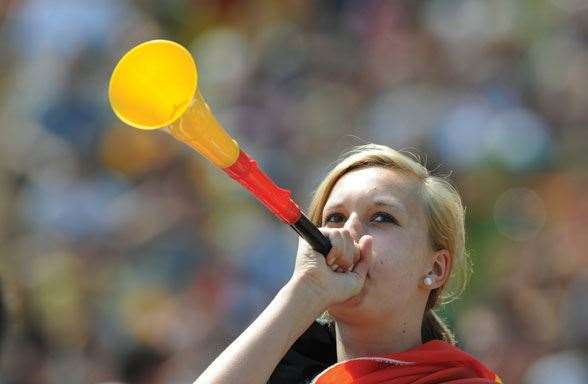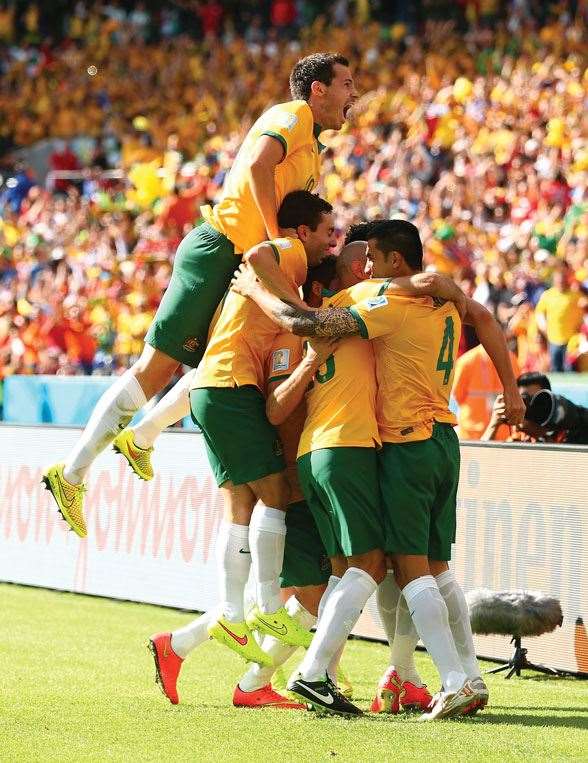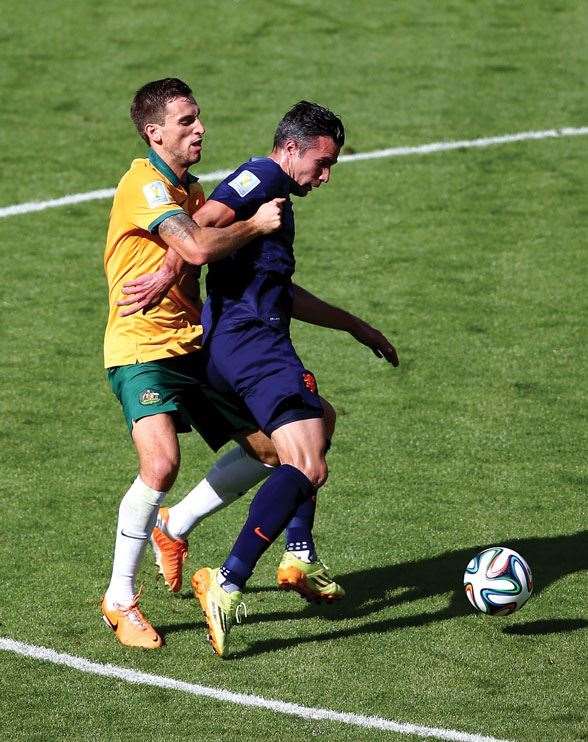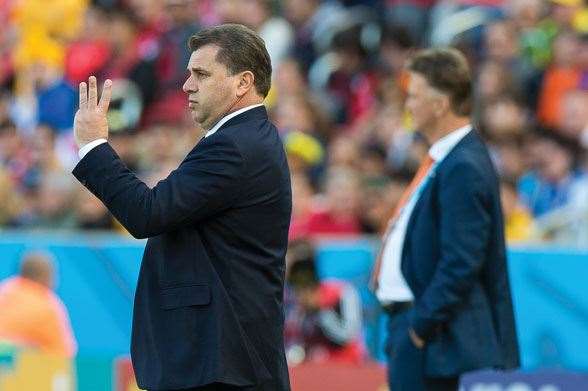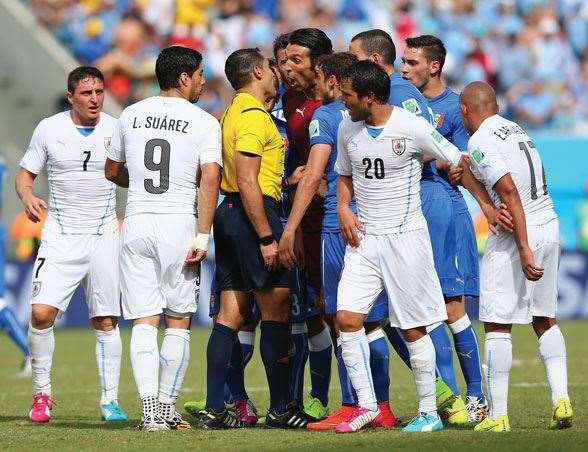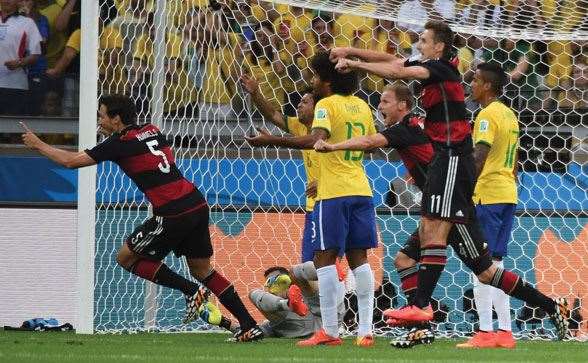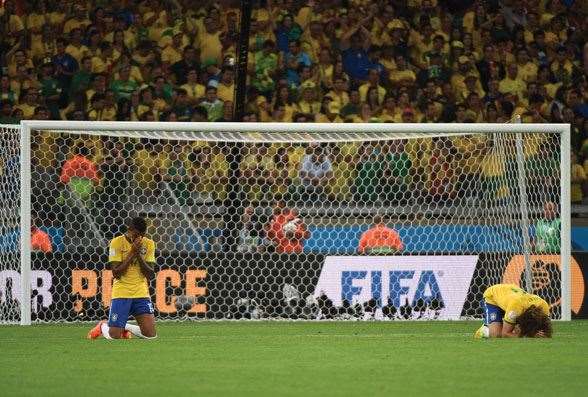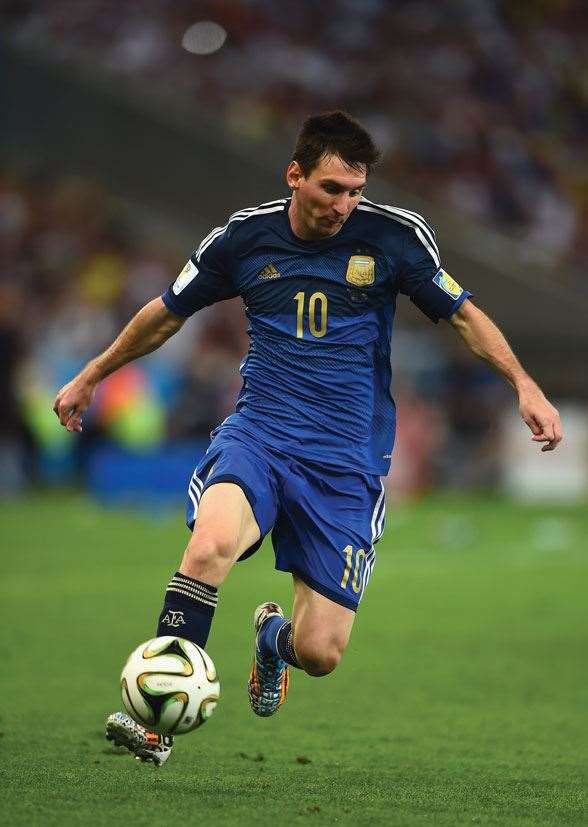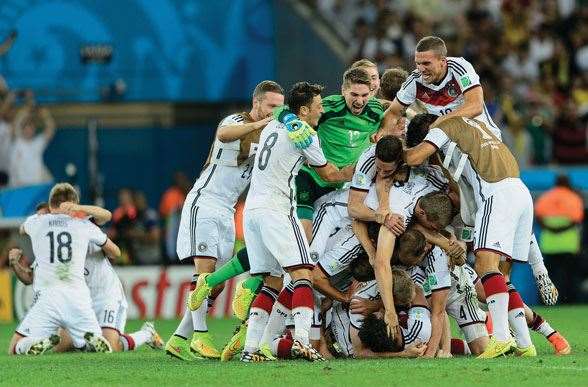The World Cup certainly taught us a thing or two, or three or ...
1. Australia really CAN play football
Our Socceroos have been on the end of some frightful drubbings in recent times. Thrashed by France and pantsed by Brazil last year. Other painfully stilted performances in our qualification run. The spirit and style of our lads back in Germany in ’06 seemed like a distant memory, and most educated watchers were fearing a ghastly humiliation for our boys in Brazil. But guess what? We may have lost all three games, but (after the disastrous first 12 minutes in which we gave two dirt-cheap goals away) we gave Chile a real run for their money. And we actually gave The Netherlands a bit of a fright. And we kinda acquitted ourselves okay against Spain, even though our boys looked tuckered out. Conclusion: When we give our young guys a go, and they do exactly what Ange Postecoglou says, and they hold on to the ball for a bit rather than roost it “safely” downfield, and then pass it out from the back along the ground to unleash our fleet-of-foot wingers and midfielders, and they RUN at the defenders and put on a bit of razzle-dazzle, and then cross the ball in to Tim Cahill in the penalty box, we look like we belong on the world stage. No doubt.
2. Australians CAN coach on the world stage
Frank Farina and Graham Arnold may have already demonstrated in the last 15 or so years that you don’t have to own a foreign passport to capably coach our national team (settle down in the back row, their coaching records were fine) – but it appears there has always been a conviction at the top end of the game that such a local option was only ever going to be second-best. Which is why they were treated with such disdain. No longer. The appointment of Ange Postecoglou, and the respectable performances of our lads in Brazil, rests the case – and probably proves the unfairness of those Aussies’ treatment over the years, especially Arnold: shifted in to caretake when it suited the powers that be, shifted out when a foreigner arrives but kept on to assist (at least Arnie knew all their names). Now we know: not only can Australia play, but an Australian CAN coach.
3. World Cup Socceroos CAN come from the A-League
Prior to the appointment of Ange Postecoglou, a succession of Socceroo managers deemed the standard of the A-League so poor, that a player would have more chance of making it into the national squad by sitting on a freezing bench in European second division than running around on our shores. What would they know? In your faces, Pim and Holger! Cue highlights reel of Mark Milligan (Victory), Matthew Spiranovic (Wanderers), Ivan Franjic (Roar), Adam Taggart (Jets), James Troisi (Victory) and Matt McKay (Roar). Each enjoyed game time in Brazil and looked quite at home. For sure, the A-League has definitely gone to another level in recent seasons, and there is much for a young player to learn overseas playing in the bigs, but the football cultural cringe that instantly dismissed performances in our domestic comp is officially OVER.
4. South Africa 2010 was the worst World Cup to watch in the last 20 years
Apart from a couple of clashes in the knockout stage, Brazil 2014 was football in excelsis. Clearly, teams approached Group stage matches knowing that winning the game was the best way of progressing, rather than NOT losing. They attacked, they ran themselves ragged, they rolled dice, they lashed shots. And, importantly, they could hear themselves think. Games hummed along and crowds roared their approval – without the damned, incessant buzzing of those god-awful vuvuzelas that poisoned the last tournament. And another thing: players were able to consistently pass the football between themselves without it behaving as if it had a lopsided gyroscope installed inside. That damned Jabulani football that Adidas created for the last comp made fools of the world’s best players. This tournament showed that you can launch a new football without reinventing any wheels. The ball behaved wonderfully well – bending beautifully when hit with a bit of side spin, and baubling just a bit when hit flat, just like that amazing free kick by Brazil’s David Luiz in their quarter-final. And while we are putting the boot in, what happened to the "sleeping giants" of Africa in this tournament? Only two teams from that continent, Algeria and Nigeria, made it out of the Group stage, and both were walloped in the Round of 16. All 14 of the others came from Europe and the Americas. Just saying ...
5. Asia is the second-weakest zone in the world of football – luckily for us
For a while there it was considered a risky move for Australian football to leave the Oceania federation and join Asia, lest the extra competition get in the way of our finals qualification hopes. Well, so far, we are batting two out of a comfortable two since getting on board, with the heartbreaks of previous decades and faraway sudden-death play-offs a fast-fading memory. And we were hardly outshone by any other Asian teams in Brazil – South Korea, Iran and Japan each only nabbed a solitary point in their groups. And none of them scored any more goals than we did (three). We should be in with a decent show of nabbing the silverware at the Asian Cup here this coming January.
6. Our 4-0 thrashing in South Africa in 2010 wasn’t so bad when you think about it now
It felt like the end of our football world when we were smashed by Germany in our first game back in South Africa. What were we even doing there in that kind of company? Here was their team of youngblood nobodies up against our collection of suddenly creaky-looking veterans, carving us up with speed and verve and panache. In fact, those “geriatrics” of ours acquitted themselves quite well in the two subsequent group games, with a win and a draw, while that German team went on to thrash England 4-1 in the Round of 16, then Argentina 4-0 in the quarter-finals, before bowing out narrowly to eventual winners Spain 1-0 in the semis. Now, we have seen essentially the same team go through and clean up the whole tournament, complete with a 7-1 defeat of host nation Brazil – with some pundits suggesting that essentially the same German line-up can win again in four years. They are an extraordinary outfit. With the benefit of hindsight, that 4-0 is looking not too bad.
7. Something has to be done to stop players from remonstrating with referees
All up, you’d have to say that the refereeing in this World Cup was pretty spot on: the mere fact that hardly anyone was talking about it is proof of that. Time and again, assistants nailed offside calls. Diving and faking is still a curse, and the routine exaggeration by players fouled is still a blight on the game, but referees were pretty quick to dish out yellows for blatant cheating. The calling out of serial hams like Arjen Robben, and his public squealing of protest that he should be pigeon-holed thus, was music to purists’ ears. He’s a wonderful player, but his open-mouthed, head-rattling, acrobatic displays at the slightest touch (and even less on occasions) makes him look like a fool and a cheat. To Australian sports fans’ eyes, who have grown up watching codes where the display of pain is considered a sign of weakness, it’s a serious impediment to their enjoyment of the world game, which will take time to overcome. But what CAN be stamped out immediately is the manhandling of referees. It seems un elievable that officials can be swamped and verbally assaulted and physically held by players remonstrating about decisions. Forget excuses like passion for the game. It’s disgusting. FIFA needs to issue an edict: you touch a referee with any part of your body, or impede him in any way, you are OFF.
8. Playoffs for third and fourth are pointless
If teams (and supporters) genuinely treated these matches as exhibition events, without regard for the result on the scoreboard, there might be a place for an “All-Star”-style match on the eve of the World Cup final. With the seriousness gone out of the tournament for the competing teams, there might be room for some Harlem Globetrotter antics, some trick shots, some humour. At least some kind of levity. But while ever two shattered teams are meant to turn up and pretend that third is better than fourth at a World Cup, these matches are a pointless ordeal for the players involved. And fans don’t care.
9. Lionel Messi is not the world’s best player
Messi has won just about every individual award there is to win in football, including now the Golden Ball for the tournament’s best player. In fact, he looked embarrassed to win it. And rightly so. When he is (was?) at his peak he can be amazing to watch, running at close to full pace with that mesmerising, feinting half-skip inserted in between steps, with the ball seldom straying further away from him than his shadow. And with a terrific range of shots from rolling or dead ball situations. And marvellously deft passes. But we saw so few examples. He seemed to spend most of the tournament ambling around the paddock with his shoulders drooping, only occasionally inserting himself into proceedings when it seemed to suit him. When it really mattered, in the final, Leo botched some good chances. There were at least five and up to a dozen better players than him in these finals.
10. Football is a simple game
For all the talk and instructive diagrams provided by the football cognoscenti, there is one basic truth about this game that was yet again confirmed in Brazil: the team with the best and fastest and fittest 11 players on the paddock (and the best back-ups on the bench) will almost always win, unless bad luck or refereeing mistakes intervene. Teams may choose to play at high speed and be aggressive in attack, backing themselves with crisp passes and risky through-balls to charging attackers, or they may be cautious and build up tension by playing a possession game until they work their way into a scoring position via a free kick or corner. But really, that’s about it. That’s the beauty of the beautiful game. The managers’ skills come in putting the right players in the right positions, but if that team then thinks that all it has to do is kick the ball back and forth a few times between themselves before one of them rams the ball into the back of the net, they’re not going to go too far. And when their opponEnts have the ball, and they don’t bother to cover those attacking players’ moves, especially when those opponents move up into their danger zone, they’re going to go down in flames. Brazil, in its semi-final defeat against Germany, looked like those puppy dogs who have somehow slipped their leashes and escaped on to a football pitch – cheerfully chasing the ball around and barking at it fiercely without actually getting hold of the thing. Germany, on the other hand, showed that speed – especially by players NOT in possession of the ball, who rapidly advance into danger zones to receive well-timed passes – is the key. It was priceless to watch them passing the ball back and forth between themselves inside Brazil’s penalty area ... “Go on, YOU score this one.” “No Tomas, YOU score this one.” “Oh alright, but you score the next one ... ”
11. Brazil is not the home of football
Brazil is a marvellous country, and its people were by most accounts fine hosts. But this notion that it is something akin to a birthright for them to rule the world at the round-ball game has been finally laid to rest. Yes, they have won five World Cups, and yes it is a game they have dominated at many levels at different times. But when it mattered this time around, playing with the home ground advantage, after boasting from the get-go that they had one hand on the trophy from the onset, they fell apart. The mythology of a cultural superiority associated with their football history was revealed to be just that – a myth. It was quite sad to see their demolition at the hands of the Germans and then the Dutch at the pointy end of the tournament – but they had been far less than dominant in the pool matches. They hardly played with the liberated, fearless style that some of their great teams have exemplified. Brazil is not the home of football.
Related Articles

Socceroos midfielder embraces move to England

Cardiff City snap up sought-after Socceroos starlet

